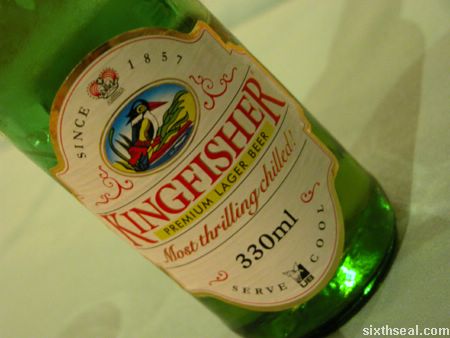Cambodia's Beer Industry
Enter any of the growing number of nightclubs in Cambodia's capital and it is not just ex-pats you find there dancing and sipping the night away, but also young, wealthy Cambodians pawing through long bar menus.
Dressed in the latest trends and sporting designer bags and mobile phones, the children of the post-genocide generation are looking for a fun time and willing to pay a considerable amount of money for it.

"Cambodians like to party and, since half the population is still underage, every year the demand is going to surge as these kids grow up," said Douglas Clayton, CEO of Leopard Capital, an investment partner in boutique brewery Kingdom Breweries, by e-mail.
To cater to this demand, a number of large-capacity luxury nightclubs have sprung up away from the tourist centers of Riverside and Boeng Kak lake, along with an increasing number of upmarket cocktail bars.
Supplying these are an increasing number of local and international beer brewers looking to expand into a relatively untapped market despite a nationwide economic slowdown.
"The beer market [in Cambodia] has good potential as penetration is low by regional and global standards," Clayton added. "Beer drinkers love some variety."
Leopard Capital's market research suggests that, out of a population of 13.4 million, about 300,000 Cambodians mature into beer-drinking consumers each year.

Such numbers led the company to invest $2 million in a Kingdom Breweries plant, located on a former Nestle factory site in Phnom Penh. The site is expected to begin operations next year, producing beer products aimed at the top end of the local beer market.
But they are not alone. India's largest, and the world's third-largest spirits company, United Breweries Group, announced last year that it would start supplying Southeast Asia with Kingfisher beer bottled in Cambodia starting in early 2010
In mid-December Germany's Ziemann Group inked a $60 million joint venture agreement with Cambodia's Chip Mong Group to produce a "world-class beer" in the country.
Two months earlier San Miguel Breweries International announced that it had joined forces with Phnom Penh-based KT Investments to find a suitable site to place a new brewery near the capital.
The Philippines' largest listed food and beverage company has more than 100 manufacturing facilities in China, Southeast Asia and Australia. It posted a sales growth rate of 7 percent in the first part of 2009 and net sales of $1.79 billion.
Due to its listing on the Philippine Stock Exchange, the company said it was currently unable to provide more specific information on its plans in Cambodia.

Cambodian alcohol consumption grew by 13 percent year-on-year in 2007, reaching 11.8 liters per capita, according to the International Centre for Alcohol Policies. This is below consumption in neighbouring Laos, at 19.6 liters, and Thailand at 31.9 liters.
Local brewers hope that the expected future growth in the drinking market along with an increase of large nightclub venues will mean that there is enough room for everybody to make a profit.
However, Kith Thieng, owner of The Rock nightclub in the southern part of Phnom Penh's Boeng Trabek district, believes that the city's beer and nightclub market is saturated.
"There is too much beer in Cambodia right now," he said by phone. "Unless they are big companies which can afford to compete, companies will find it hard to survive. It seems every beer in the world is already in Cambodia."
He added that the past year had seen a large increase in the number of clubs in the city but the difficult climate had forced the 4-year-old club, which also has karaoke rooms, a spa and a cinema for patrons, to cut its maintenance costs by up to 50 percent.
"The clubs will fail because the market is not big enough for these clubs," he added. "Everybody expects to survive but it is very difficult especially in this kind of economic environment. They opened at the wrong time and in the wrong climate."
Aside from business competition, Thieng said the Cambodian government has started cracking down on the behaviour of drunken youngsters.
"A lot of youngsters did wrong things with drunken violence so the government has now imposed rules to stop them partying," he said. "These kind of rules have slowed down the growth of the industry."

